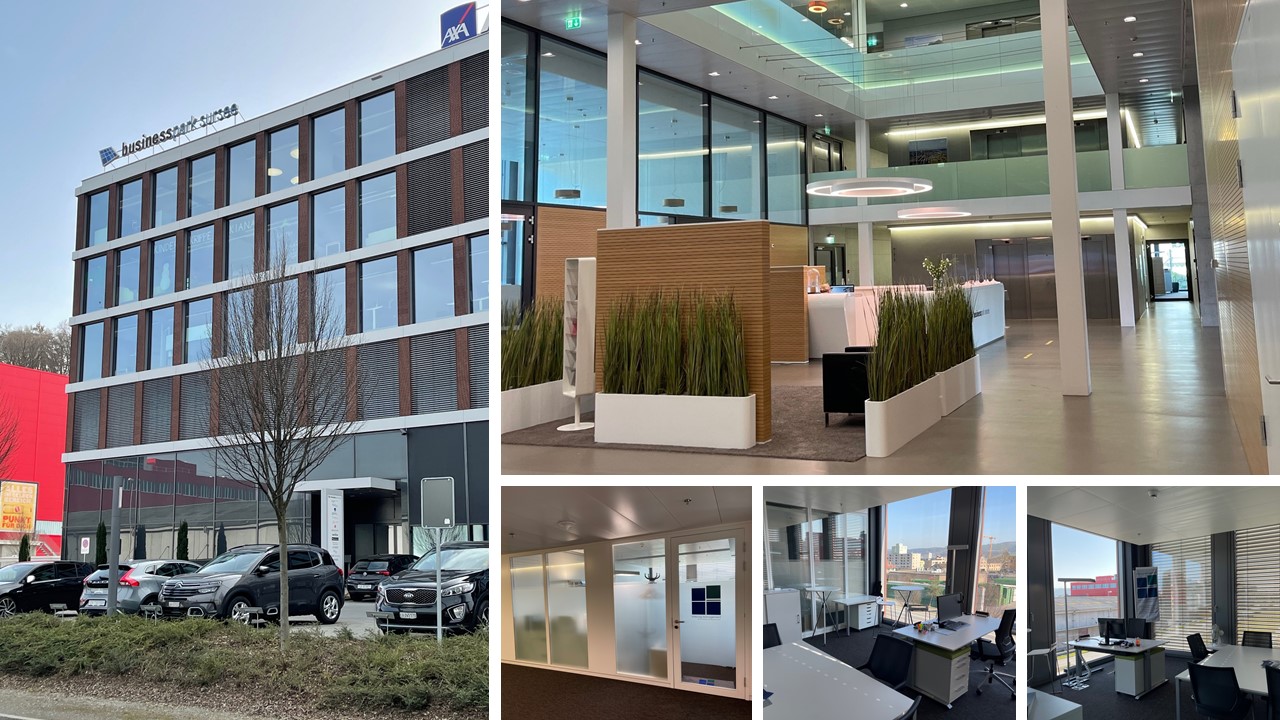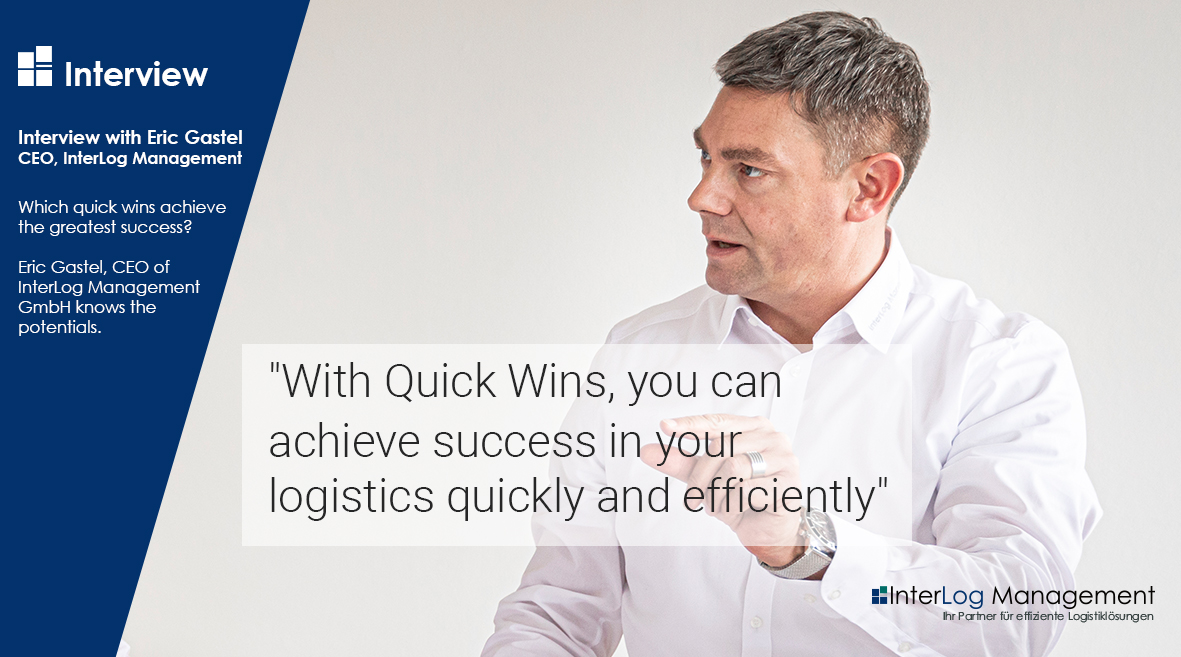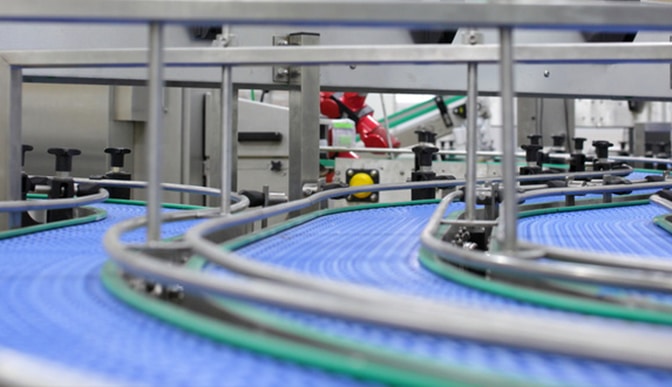Into the future with the optimal logistics strategy
Digitalisation, supply chain management, in- / outsourcing, make or buy
One step ahead with the right logistics strategy
Make the right strategic decisions — we accompany you in the process
The optimal alignment of the logistics strategy is essential for companies to be competitive. To be able to define a profitable and future-oriented logistics strategy, an analysis of the entire logistics is necessary.
Answer strategic questions. Where does your logistics stand today, where do you want to go in order to position your company more successfully on the market in the future or to secure your market position in the long term? How can the development of markets be promoted through structures? Which requirements for location network structures are needed for your own logistics strategy? Can services that are not part of your core business be outsourced? In order to define a logistics strategy, it is essential to determine and evaluate cost drivers and impacts in advance.
Together with you, we define the future framework conditions and support you in developing, adapting or renewing your operational logistics strategy. In doing so, we take into account your requirements, logistical interrelationships, partner networks, suppliers and distributors as well as internal company departments. We plan your supply chain taking all characteristics into account.
Together we align your logistics strategy
A holistic view of your logistics is essential
- How digital is your logistics?
Digitalisation is a strong driver of growth and is changing entire industries and business models. The focus of digitalisation is primarily on optimising existing processes, but the transformation of the market will require the new development of digital processes and offers in the future.
Machines of all kinds, transport, warehouse and merchandise management systems communicate with each other so that only very little human intervention is required.
The future will demand seamless management of global supply chains. This requires a “smart” supply chain that must be instrumented, networked and intelligent.
- Our expertise
- Industry 4.0 and digital transformation
- Digitalisation along the supply chain
- Smart supply chains
- Automation
- Digital trends
- Shaping digitalization
Learn from our logistics experts how you can create a holistic digital transformation and use it profitably.
- Is your supply chain aligned optimally?
We advise you on the design, planning and control of the flow of goods and information along your entire supply chain.
With regard to the design of your supply chain, we are primarily guided by the goals and the given possibilities of your company as well as the structures of your goods and merchandise. Your corporate goals and your strategy define which products are offered in which markets and in which quality, as well as which distribution and sales concept should be used for this. Based on these specifications, a supply chain can be designed with all involved entities and parties at the respective locations and the corresponding logistics systems, and a continuous, sustainable flow of information between the actors can be realised.
- Your benefits
- Avoid disruptions in the supply chain and thus improve delivery speed
- Achieve the optimum between stocks, throughput times, response and delivery capability as well as costs
- Achieve more planning reliability and data transparency
- Design Supply Chain
Learn from our logistics experts how you can already increase your profitability and achieve competitive advantages today.
- Logistics New construction or modernisation?
Regardless of whether your construction project starts on the “green field” or you want to convert or modernise your factory or warehouse, the “right” strategy must be well thought out in advance.
We support you in your project. Whether for new construction planning, conversion planning, warehouse modernisation and plant structure planning — as logistics consultants with years of experience in the sector, we are your contact.
In the area of plant modernisation / retrofitting, there is an increasing focus on the integral networking of automation technology. In the case of plant modernisations, in which the networking of various warehouse technologies is an essential part of the project, the challenge lies in particular in carrying out the modernisation project during ongoing operation. This means that the system modernisation is carried out parallel to the regular daily business of the respective companies.
- Our expertise
- Definition of the degrees of automation as well as the storage techniques
- Visualisation of the intralogistical flow of goods (goods receipt — warehousing — order picking — production supply — returns management)
- Calculation of ROI (Return of Investment) based on investment costs and potential savings
- Plant modernisation during operation
- Transshipment area planning / internal transports
- We realize your project
New constructions or conversions as well as retrofits during operation are our core business. Benefit from our logistics experts.
- In- or Outsourcing?
Are you unsure whether you would like to outsource sub-processes from logistics or contract them out to third parties? Every company has core competencies that guarantee its success. We help you to concentrate on your core competences and thus to differentiate between core processes and accompanying processes.
On the basis of costing models and profitability analyses prepared by us, we record every area of your business and compare your process costs with the costs and services of potential external service providers. Our evaluation is neutral and objective. Our goal is to get the best out of your company’s logistics — this is what we focus on as a pragmatically oriented consulting firm.
- You receive a neutral and objective assessment
Concentrate on your core competence! We provide you with a sound basis for decision-making.
Where does your logistics stand today and where do you want to go?
We provide you with an overview of your overall logistics and support you in making decisions on how to align your logistics in a competitive and future-oriented manner.
Logistics strategy consulting
Questions and answers about logistics strategy consulting
After you have placed an order with us for logistics strategy consulting, the first step is to determine your current logistics strategy and evaluate cost drivers. In an initial meeting in the form of a workshop (on site), we will get a rough overview of your site network structures, your supply chain, your logistics processes, your warehouse systems and the degree of automation. The ACTUAL analysis serves as the basis for all further optimization steps.
A logistics strategy is not only about a make-or-buy decision or the reduction of logistics / process costs, but much more about your long-term priorities, which you set yourself. Our goal within logistics strategy consulting is to build and establish the logistics of your company as a strategic core competence.
Our consulting services within the logistics strategy are objective, neutral and well-founded. We have our finger on the pulse and are familiar with the creation and adaptation of innovative logistics strategies through many years of experience within our customer projects. We recommend the support of external logistics strategy consulting.
Current topics

News
Relocation to the Sursee Business Park (CH)
Our Swiss team has moved. As of now, the Swiss branch of InterLog Management GmbH can be reached at the new company address “Allee 1B (Businesspark Sursee) in 6210 Sursee”! “The Businesspark Sursee offers

Press releases
Quick wins in logistics
How can you increase your process efficiency with hidden quick wins? Interview with Eric Gastel, CEO of the logistics consultancy InterLog Management. Logistics offers numerous optimisation potentials like hardly any other area, since the

References
Detailed concept for process automation [Hans Kupfer & Sohn GmbH & Co. KG]
Food production and especially the production of meat products in Germany are characterised by high competitive pressure as well as high price pressure within the food retail sector. The resulting low profit margins
